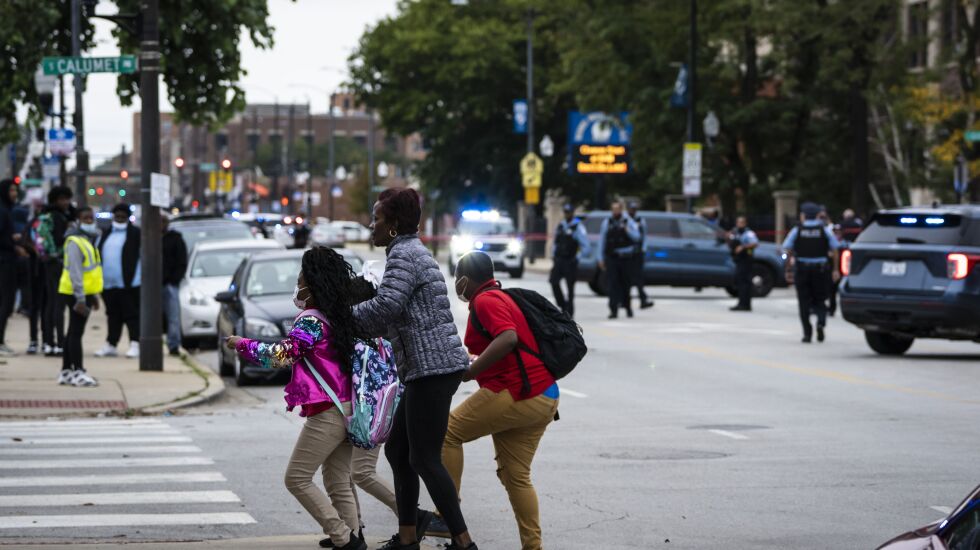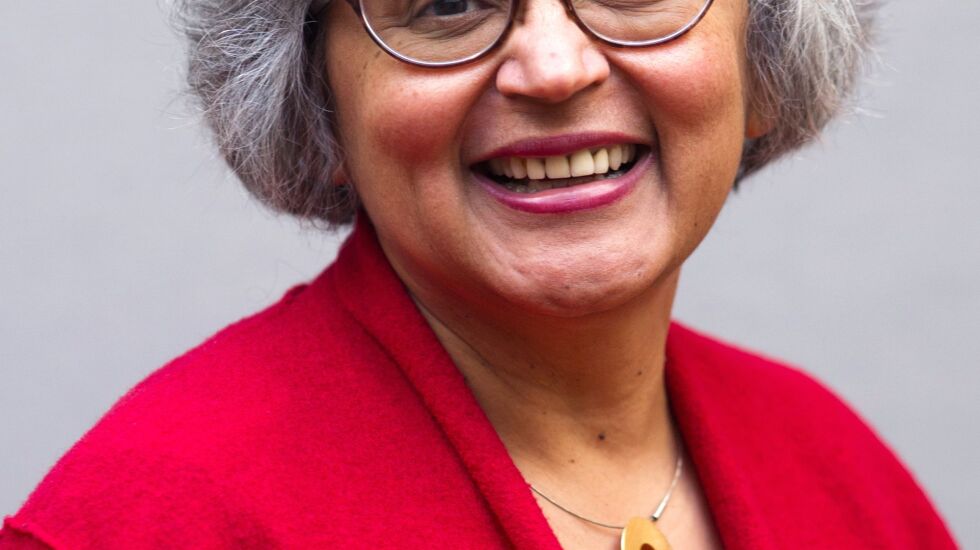
There’s an important point to be made about philanthropy. Some people, including givers themselves, suspect it doesn’t do a lot of good.
Think about it. A lot of the major gifts you read about are to universities, museums, the symphony or the ballet company — fine causes, all, but not the kinds of things that directly benefit the poor or tackle major societal problems. Some gifts can perpetuate a cycle of well-endowed institutions with well-paid staff serving a well-off clientele.
Many donors just prefer to stay within a closely defined comfort zone.
To change that, there’s a Chicago-based solution with global ambitions. It’s called Lever for Change, an affiliate of the John D. and Catherine T. MacArthur Foundation. Within that august circle, Lever for Change can be seen as a force that’s just a little subversive.
“We want to shake things up,” CEO Cecilia Conrad said. She wouldn’t characterize her team as rebels, just folks marching to a different drummer, shades of the 1960s.
“We want to provide [donors] with an opportunity to see rigorously vetted, great ideas in the space that I would call social impact,” she said. It concentrates on programs in areas such as poverty, health care, racial and gender inequities, climate change and civic involvement.

“In each case, what we’re hoping to do is to help the donor find great ideas but also to elevate and uplift projects that might not get attention,” Conrad said.
It’s primarily not giving away its own money. The group is a grant facilitator, marshaling the monied clout of cooperative foundations and individuals that have a similar impatience about seeing real change. It’s a challenge grant system, with donor commitments of at least $10 million, allowing for awards of substantial size.
Conrad’s group facilitated a $10 million grant from the W.H. Kellogg Foundation to Chicago’s Communities United. The recipient is training young people to help others in Black and Brown communities overcome mental health issues that arise from violence and poverty. In partnership with Lurie Children’s Hospital, the group wants to enlist 3,000 youths to promote community healing from what it calls the “normalization of trauma,” a chilling phrase if there ever was one.
Lever for Change also managed a $10 million award from several sources to City Bureau, based on the South Side. It trains residents to report on public meetings, replacing what’s been lost in old-style journalism and getting people engaged in decisions that affect them. Bolstering sources of fair information has become a priority of many foundations, including MacArthur, a supporter of the Chicago Sun-Times’ conversion to nonprofit status.
Conrad heads a staff of about two dozen, working on an annual budget of around $9 million. The team has celebrated a milestone. Since its start in 2019, Lever for Change has steered grants worth $1 billion. It enlists numerous donors in its work, while its own funding comes from MacArthur; the Bill & Melinda Gates Foundation; LinkedIn co-founder Reid Hoffman; and Amazon heir MacKenzie Scott and Dan Jewett, now reportedly divorcing.
Other awards Lever for Change arranged have led to mental health care in Texas, refugee support in 10 countries, entrepreneurial programs in Uganda and Ethiopia, and training for tech careers in U.S. cities.
Conrad said her group’s approach is gaining momentum, with donors getting access to its growing database of programs it has judged to be creative and effective. She’s set a new goal of $2.5 billion in grants out the door by 2025.
The grants issued so far are mostly for multi-year programs, so Conrad said the evaluations are ongoing, with no certified failures yet. But she said there’s a strong tendency among philanthropists to be risk averse. Conrad said she tries to get donors to rethink risk and relate it to their own success with wealth. “Yes, you’re going to take some risk, but that’s how you’re going to have the big impact.”
It’s an ongoing issue. Forbes has reported that many of the 400 richest Americans, with a net worth of some $4 trillion, give just a sliver to charity. And how that’s distributed raises more questions. In 2018, David Callahan, founder of Inside Philanthropy, wrote a stinging critique.
“Billionaire philanthropists give for things like workforce development, but rarely address that the U.S. economy is no longer working for a good swath of the population, even as the rich keep getting richer,” Callahan wrote. “They give for education, but almost never to challenge deeply entrenched patterns of school segregation or the way funding inequities are baked into K-12 systems. They say they want to empower low-income Americans, but rarely invest in movement building efforts or worker organizing or voter mobilization.”
Maybe business schools need to teach that you can’t take it with you.







